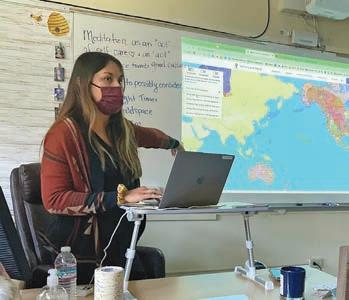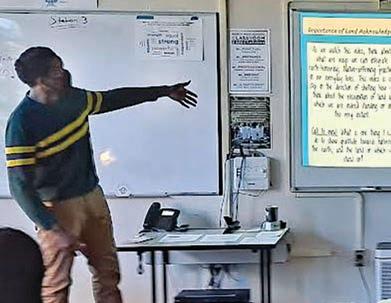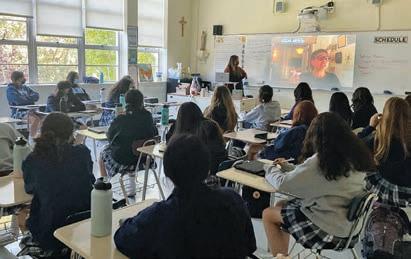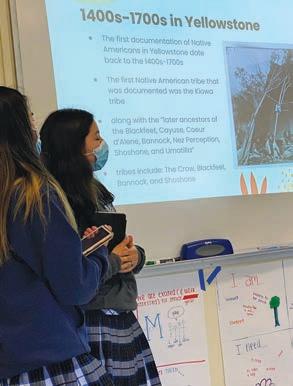
2 minute read
Diversity, Equity & Inclusion
DEI The Diversity, Equity, and Inclusion (DEI) Committee works in teams committed to a school culture that stimulates diversity of thought, supports equity in opportunity, and creates a learning environment where Mercy Diversity, Equity, and Inclusion students feel a strong sense of belonging and safety. Twenty faculty and staff meet regularly to ensure that the faculty teaches with equity in mind and encourages Mercy students to create a positive and inclusive environment.
DEI Leadership:
Natalie Cirigiliano Brosnan ‘02, Head of School Vashti Sinigayan ‘99, Board DEI Chair Emily Gonzalez Jauregui ‘15, Board DEI Chair Sabrina Avenido ‘22, Student Representative
Faculty & Staff DEI Committee Members:
Julia Angeles Lauren Conklin Peter Diaz Sandy Flaherty Elizabeth Franco Maika Hefflefinger Alexandra Hyman Aurora Kearney Nevett Christina McMorrow Sarah Murphy Caroline Ocampo Stefanie Oudiz Joy Phillips Claire Rietmann-Grout Angie Simonetti Tom Wooten
Recommended Reading:
This past summer Mercy’s faculty and staff read the book Biased: Uncovering the Hidden Prejudice That Shapes What We See, Think, and Do written by Dr. Jennifer Eberhardt, Bay Area resident and Professor at Stanford University, who is a leading expert on unconscious racial bias. Dr. Eberhardt examines racial bias at all levels of society— in our neighborhoods, schools, workplaces, and criminal justice system.


Indigenous Peoples’ Day - OCTOBER 11
Mercy recognized and celebrated Indigenous Peoples’ Day, which was established in San Francisco in 2018. It is celebrated to honor the lives, cultures, and histories of the original inhabitants of this land. Mercy reflected on the painful history and current Native American struggles that are acknowledged on this day.
Our students, faculty, and staff recognize and honor the cultures and people who have lived on these lands longer than anyone. Religion teacher Maika Hefflefinger shared that in her Religion 2 and 3 classes, students listened to a video where Lakota elders and tribal members expressed the powerful impact land acknowledgment can have on them and the healing and understanding that can come between Native and non-Native peoples when the history of the land on which we stand is acknowledged and honored. Afterwards, students had the opportunity to look up what Native territory their home, birthplace, or any special place of meaning resides on. Students learned how Mercy resides on the ancestral land of the Ramaytush Ohlone peoples who are the original inhabitants of the San Francisco Peninsula.
It was a special day where we held in our prayers our Indigenous students, alumnae, and colleagues. Learn about land acknowledgement by watching a short YouTube video called #HonorNativeLand and see which Native territory your home, workplace, or possibly even birthplace resides on this interactive map at https://native-land.ca/."


Indigenous History
OF NATIONAL PARKS
After learning about Andrew Jackson’s brutal treatment of Native Americans in Mr. McGoron’s US History class, students researched the indigenous history of America’s national parks. Using the Atlantic article, “Return the National Parks to the Tribes,” students presented ideas for how reparations could be made for the displacement suffered by native tribes today. “As we honor National American Indian Heritage Month, it is important to recognize this often forgotten history of our national landmarks.” —Mr. McGoron, M.Ed., Social Studies Department Chair








